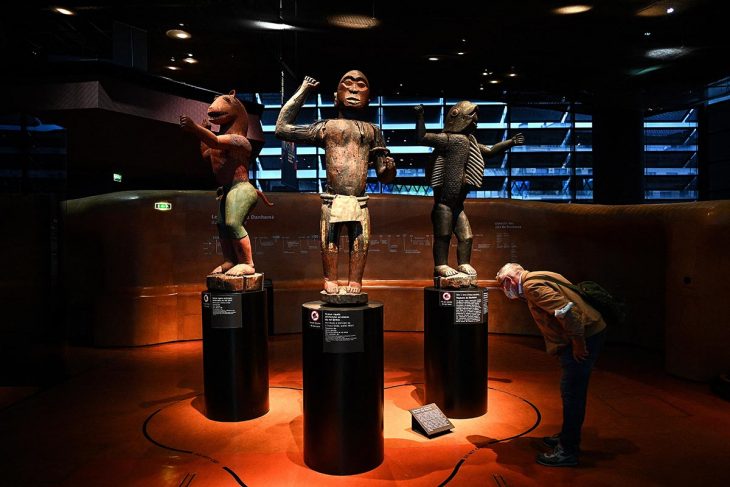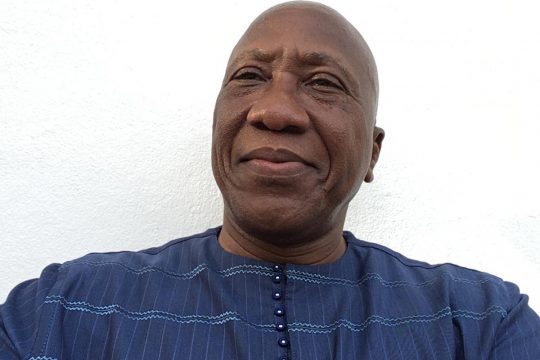Every society is full of cultural property of various kinds, and African societies are no exception. This cultural heritage is valuable in many different ways. It may be associated with a monetary value, especially today, but this does not detract from its other values - religious, historical and emotional, to name only those most difficult to convert into money. These values also vary over time. Today, Africans more readily value African art objects for decorative purposes, whereas they used to see them only for public places like palaces.
Some of these art objects are outside their societies of origin and this raises a debate. Of course, the debate depends on how and when they left Africa.
What interests us here is transfers of cultural property that took place during foreign domination of African societies, that is, the five to six centuries before independence, between 1400 and 1960. Transfers during this period seem to have been of three kinds: 1) unfair sales contracts; 2) seizures by the foreign power; and 3) thefts, sometimes in the form of a military expedition whose sole purpose was to take these art objects. It is possible that there were also gifts, but in the absence of any evidence, we should be cautious about this as a general practice.
Illegal owner cannot set conditions
In my humble opinion, every transfer that falls into one of these three categories is simply invalid in law, and the first remedy is restitution. Any other perspective is wrong, unless the society to which restitution is due decides voluntarily otherwise.
Indeed, a contract of sale that is unfair is classically considered void, because of the inequality between the parties, the possible coercion and deception of one party towards the other. Seizure by a foreign authority and theft do not pose any difficulty, since they are an abuse of power and a dispossession without anything in return, both of which violate the right of ownership. So we can reaffirm that these three ways of transfer must be considered null and void, and that restitution is required.
An acquisition that violates the right of ownership cannot be put right by the illegal acquirer deciding on joint ownership. Put simply, restitution cannot be conditional, especially when it is Western societies who have benefitted illegally from the transfer of these objects that want to set the conditions. The illegality of Western countries’ title of ownership deprives them of any right of control over the future of these objects. As far as we are concerned, it is up to the injured African societies to determine what they want to do with them.
That nevertheless carries several risks.
Risks and obligations
First, the corruption and lack of morality of certain State agents in our countries can lead to more illegal transfers of property. Lack of expertise and means of conservation can lead to the destruction of these assets. These risks need to be managed by the harmed societies recovering their right of ownership. They should not be managed by the illegal owners. African States and their leaders must take responsibility, but this debate should not be confused with the obligation to return cultural property.
International law, like all law, reflects the balance of power. Given this simple and indisputable rule, strategies are now being put in place in various Western countries to negotiate joint management of most of these art objects. “We should engage France in a new policy of circulating art works,” declared French MP Pascal Bois, for example. “We must share masterpieces, lend them, deposit them. In the museum environment, the search for the universal should have no borders because it is the common heritage of humanity.” Some symbolic restitutions have been organized, like between France and Senegal and, soon, between France and Benin. But the first major flaw in this process is that the thief wants to dictate the terms of a so-called reparation. It’s all smoke and mirrors.
Multilateral framework
The time at which these cultural assets were removed from African societies is also important. This, in fact, will affect the applicability of existing conventions, because of the general principle of non-retroactivity of treaty rules as well as their ratification, which is not universal.
In principle, existing treaty norms do not deal with prior situations, but only those arising after their entry into force, and sometimes only after treaty ratification by the states concerned. Naturally, this treaty framework is not suitable for the cultural artefacts we are talking about, which were generally transferred long before the existence of the present African States. We are thinking in particular of the Convention on the Means of Prohibiting and Preventing the Illicit Import, Export and Transfer of Ownership of Cultural Property, established in 1970 by UNESCO and ratified, to date, by 141 States.
UNESCO set up an additional formal framework to overcome the limitations of the 1970 Convention. This is the Intergovernmental Committee for Promoting the Return of Cultural Property or its Restitution, set up by a resolution of the UNESCO General Conference in 1978. It is a multilateral negotiation framework for voluntary restitution. However, the states that have benefited from illegal transfers much prefer bilateral negotiations, which they consider to be simpler and more fruitful with leaders who may be corrupt or not equipped to obtain a favourable outcome.
As a lawyer, I would not trust the law, especially if it is born in circumstances where the equality of arms between the parties, on the one hand, and the representative character of the African party, on the other hand, are not guaranteed in the search for a solution to a violation that should not even be a matter for discussion given the three scenarios presented above.
Up to Africa
In short, I come back to the only viable reparation: return to the statu quo ante, restitution in integrum – restitution pure and simple of the art objects. Once we have the courage to implement such a radical solution, the only fair one, all is then possible.
I can’t imagine how it could be otherwise: if you steal my car, we are not going to have a conversation about your need to use it once you have returned it to me. Even if I was tricked into selling you my car at a discount, restitution is the only way out, except that restitution is reciprocal: you return my car to me in the same condition as when it was sold, and I return the amount you paid. If I can't give you back the amount you paid, then we have room to negotiate, in all fairness this time, so as not to perpetuate an unequal relationship. This is a trivial comparison, but it might help better understand people’s frustration at the complex legal arrangements we see or hear about in what should be a simple debate.
The main difficulty, in my humble opinion, is the general weakness of transnational and international law: there’s no police force to implement the rules. In international relations, it is the will of the states that determines whether or not they will abide by the rules. And there is no dispute settlement mechanism that can be used for this type of situation. It is therefore up to Africa to show solidarity, get itself heard, and impose before all multilateral bodies the right to restitution without conditions.
 SETONDJI ROLAND ADJOVI
SETONDJI ROLAND ADJOVI
Sètondji Roland Adjovi has been teaching since 2009 at Arcadia University in the United States. He was a lawyer with the judges of the International Criminal Tribunal for Rwanda and then victim's counsel before the International Criminal Court. He has appeared before various other courts, including the African Court on Human and Peoples' Rights and the United Nations Dispute Tribunal.







